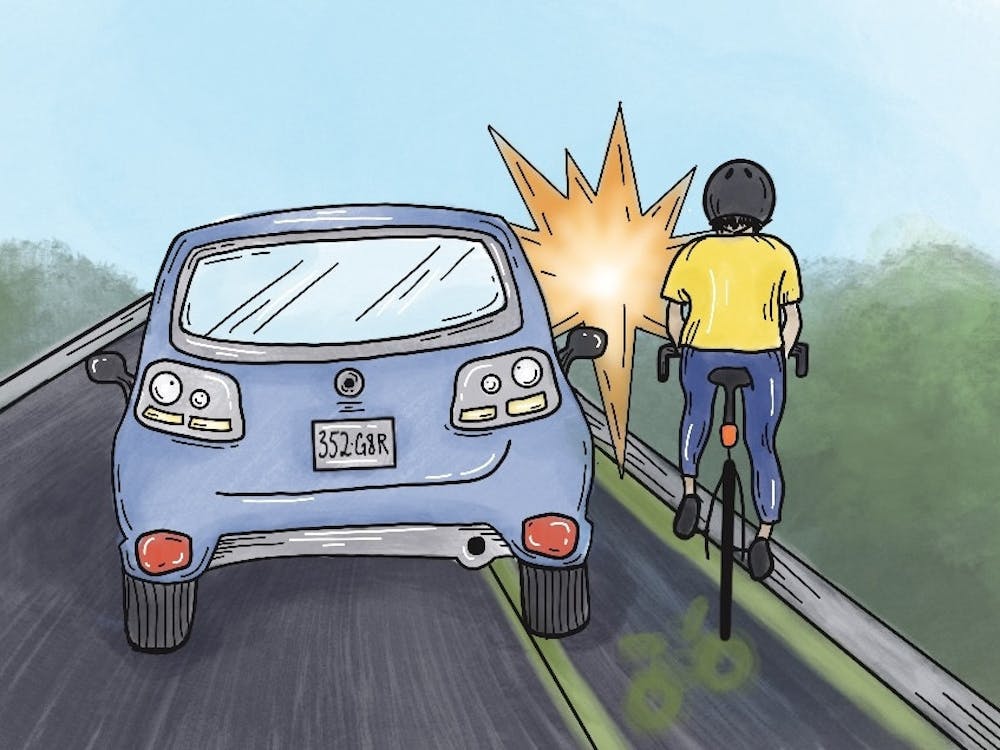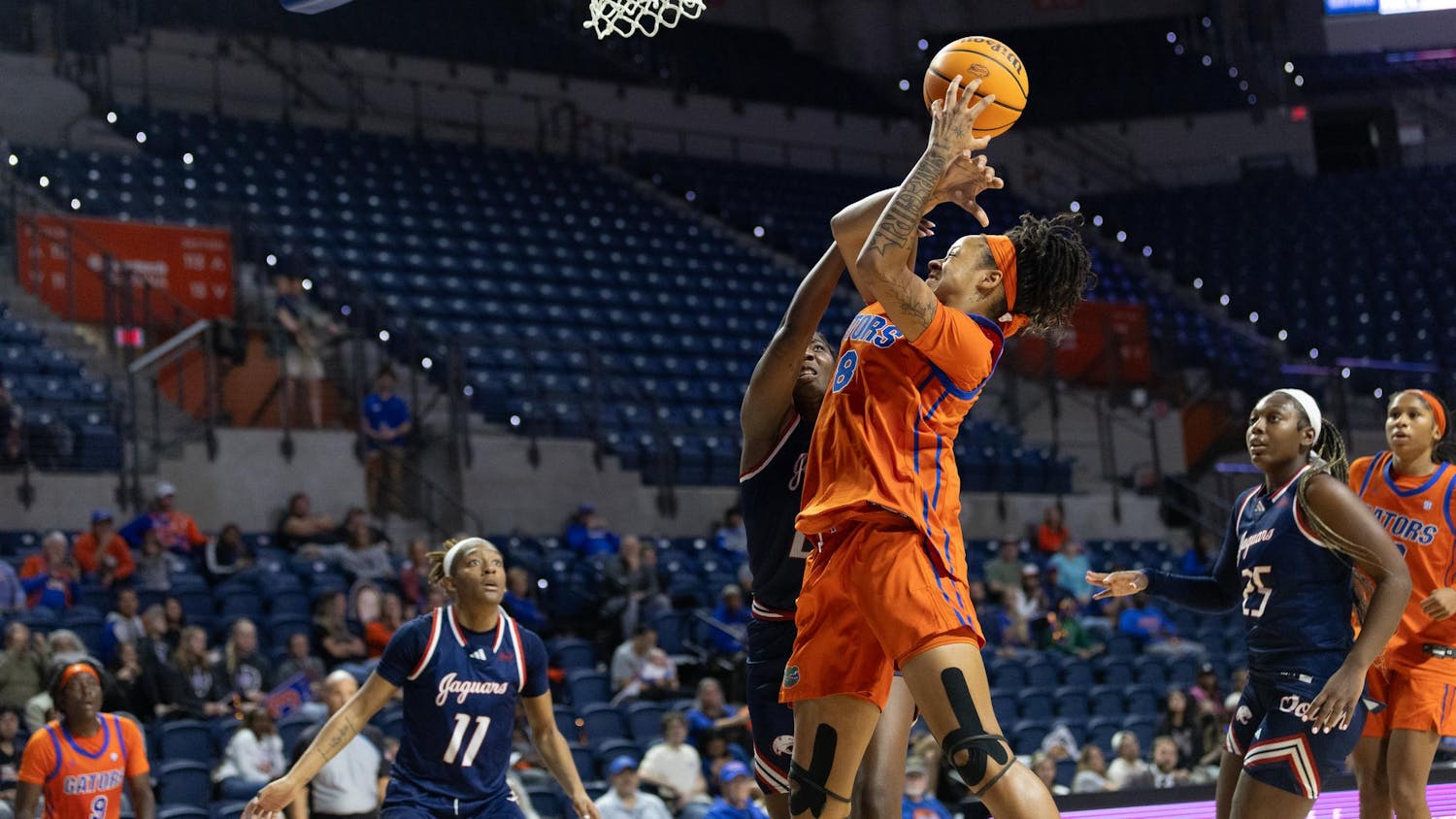Gainesville cyclists are ready for long-awaited changes to keep them safe on the roads.
The Gainesville City Commission approved a speed reduction plan on Jan. 20 to improve safety for pedestrians and cyclists around the city. The commissioners looked at studies of different traffic safety in other cities and found that speed was the number one determinant when it comes to fatalities and injuries.
The plan would include reducing speed limits to 30 mph on city roads, not including University Avenue, 34th Street and 13th Street, and to 20 mph on neighborhood streets to combat cyclists’ deaths and encourage safer driving. However, some cyclists believe the changes won’t make a difference.
Fatalities of cyclists involved in crashes have increased in Alachua County since 2019. There were zero reported bicycle fatalities on the Florida Highway Safety and Motor Vehicles’ website in 2019, two in 2020 and four in 2021.
Eliot Spector has been hit by cars multiple times since he began cycling with Team Florida Cycling more than a year ago. He believes the issue goes beyond just reducing drivers’ speeds.
The 25-year-old UF health outcomes and biomedical informatics graduate student’s worst experience was biking past Rawlings Hall. An oncoming car turning left caused him to collide with the curb and launch off his bike.
“I’ve seen this happen to multiple friends over and over, and immediately when it happened, the driver started yelling at me,” Spector said. “It’s very frustrating as a cyclist when it happens obviously because you know that they’re in the wrong but, they’re somehow still blaming you.”
One of the most recurring collisions and close calls for cyclists is when a car making a right turn doesn’t check the bike lane and cuts the rider off.
“This just happens a lot,” Spector said. “It’s almost completely predictable.”
Spector and his friends expect the worst when riding and have a constant feeling of danger, especially on University Avenue, 34th Street and Archer Road, which are not safe for bikes.
“If you actually need to bike to commute, you have to either intersect or go directly on roads with dangerous bicycle infrastructure,”Spector said.
City Commissioner David Arreola said reducing speed limits citywide has sparked a large public debate with support and opposition to the plan. Arreola views the discussion as a question of justice.
“Are we going to prioritize people’s convenience behind the wheel to go faster speeds?” Arreola said. “Or are we going to say: ‘Enough is enough?’”
He argued the inconvenience of lower speeds is incomparable to the safety and lives of pedestrians and cyclists but encourages an ongoing debate until the speeds are lowered.
This is not the final solution, though, Arreola said.
“I believe that it is time for Gainesville to invest in a bike roadway infrastructure so that people can ride their bikes throughout the city to get where they need to go,” Arreola said.
The new speed reduction plan will not affect roadways maintained by state, county or federal governments — meaning University Avenue, 34th Street and 13th Street speed limits will remain the same.
Pegeen Hanrahan was Gainesville mayor from 2004-2010 and a city commissioner from 1996-2002. She rode her bike to work every day during her time in politics.
Although the speed tables on University Avenue were a step in the right direction, Hanrahan said this is a temporary fix.
A major road project or reconfiguration is a complex process that could take 15 to 20 years, involving multiple levels of government to achieve, Hanrahan said.
Hanrahan said some of the issues go beyond the road’s design.
A large portion of Gainesville’s population is students. The young, inexperienced drivers don’t fully understand how vulnerable pedestrians and cyclists are, Hanrahan said.
“People send their children here thinking they’ll be safe,” Hanrahan said. “Sometimes they’re not. It’s heartbreaking.”
University Avenue poses an issue for everyone, not just cyclists. Nearly a year ago, two students lost their lives within less than a month of each other, Maggie Paxton, Dec. 9, and Sophia Lambert, Jan. 16. Recently, Sabrina Obando was hit by a pickup truck and killed trying to cross Northwest Eighth Avenue.
Andrew Millford, a 35-year-old UF student pursuing a doctorate degree in education, works in UF Student Government’s Bike Repair shop in the J. Wayne Reitz Union building. He said roughly once a month a student comes to the shop for repairs who was involved in an accident with a car.
He’s been biking to class for years and relies on cycling for his job at Jimmy John’s, where he’s noticed why some cyclists might feel threatened by drivers, and vice versa.
“They don’t know how to communicate and work with each other with traffic laws,” Millford said. “You’ll need to know rules of the road.”
Although Millford said some places in Gainesville are set up well for cyclists — like one-way streets and dedicated bike roads — he believes the city could use improvements.
At the bike repair shop on campus, Millford meets new cyclists often and offers his own advice.
“I try to tell kids that are not good at biking, haven’t done it in a while or don’t know their bike to just stay off University, stay off 13th, stay off 34th — even though they have those bike lanes,” Millford said. “It’s a deathtrap.”
Spector supports the City Commission’s plan to reduce speeds throughout Gainesville and wants residents to embrace the possibility of a more inclusive city design.
“You step out of your house, and then you have the only place you can really walk is within 10 feet of a 50 mph, two-ton piece of metal,” Spector said. “It’s just absurd.”
It comes down to an argument about humanity and quality of life, Spector argued.
While Spector understands cars are essential for some, he advises other cyclists — and drivers — to view the other through a human perspective, that nobody is intentionally trying to injure or cause a dangerous situation.
Millford and Spector want a more cyclist-friendly city in the future, but Hanrahan said these things would take time, maybe even decades.
Contact Troy Myers at @tmyers@alligator.org or follow him on Twitter @Troy_Myers1.

Troy is the criminal justice reporter and a fourth-year journalism major with an outside focus in business administration. He previously studied accounting for two years at Santa Fe College but has since transferred to UFCJC. When Troy isn’t writing, he enjoys going to the beach and spending time with his dog, identical twin brother and family.






